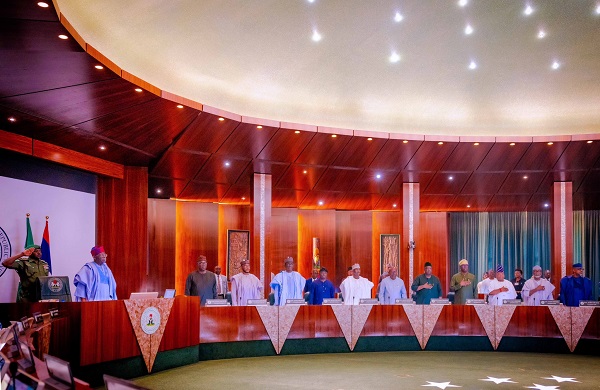The National Economic Council (NEC) on Thursday deliberated on the state of the nation’s economy. It resolved to improve the situation, especially by supporting the growth of Micro, Small, and Medium Enterprises (MSMEs).
NEC said by providing 49 percent of the nation’s Gross Domestic Product (GDP), MSMEs remain the backbone of the economy.
The council reached the decision during its 141st meeting at the Presidential Villa, Abuja.
Vice-President Kashim Shettima presided over the meeting attended by Institute Chartered Accountants of Nigeria(ICAN) leaders.
The ICAN chiefs were at the meeting to “shed light on the accountability index and their ranking of states on public financial management (PFM).”
Shettima, according to a statement by Stanley Nkwocha, senior special assistant to the President on Media and Communications (Office of the Vice President), urged the council members to assess the administration’s journey so far and adopt strategies to buoy the economy.
He said: “As we plan for stability, we must remember that the backbone of our economy isn’t solely comprised of our big corporations. While these entities play a vital role in tracking the nation’s productivity and employment data, it is our Micro, Small, and Medium Enterprises (MSMEs) that should keep us awake at night.
Accounting for about 96 percent of all businesses in the country and contributing 49 percent of the national GDP, MSMEs are the backbone of our economy. The past few months of our efforts to mend the economy have caused disruptions that have sent shockwaves throughout the industry.
We, therefore, cannot afford to ignore this reality; immediate intervention is essential to mitigate the damage and ensure their survival.”
To achieve President Tinubu’s promise to create jobs and eradicate poverty, the Vice-President advised that access to capital must be central.
Our agenda today revolves around the ongoing and proposed interventions we have designed to support our small businesses.
“Whether it is addressing the inflationary impacts of the inevitable solutions proposed to save the economy or tackling the issue of high-interest rates at our financial institutions, our focus is on ensuring the survival and prosperity of these enterprises.”
Shettima also underscored the role of digital technology in the growth and sustainability of small businesses, tipping Investment in Digital and Creative Enterprises (iDICE) as “a work in progress to upscale these businesses.
The potential of our creative and digital economic sector is vast, and iDICE presents an opportunity to explore it and offer our people an advantage to compete fairly with their counterparts from other parts of the world,” he explained.
The Vice-President highlighted President Tinubu’s administration’s commitment to fiscal responsibility and management by citing a recent positive rating of Nigeria’s economic outlook by Fitch, a global credit rating agency.
Shettima stated that the rating reflected increased confidence in the nation’s economy.
The statement partly reads: “There is no doubt that this government has demonstrated transparency in its financial dealings and protections. Therefore, it is not surprising that just a few days ago, Fitch Ratings upgraded Nigeria’s credit outlook to positive, citing reform progress under President Tinubu.“This reflects the increasing confidence in our economic trajectory, especially in light of policy changes aimed at reducing our debt service burden.”
The Vice-President also stressed the need for all three tiers of government and their agencies to adjust their “finances and planning for the rainy days based on realistic projections.”
Calling for proactive measures to tackle flooding this year, he noted that incident reports of Nigeria’s vulnerability to flooding in 2024 are such that required constant vigilance and preparedness.
“We cannot afford to be caught off guard by a disaster that we are all too familiar with, one that has devastated various communities across the nation, including our urban centres.
“We must not merely prepare for a cure; instead, we must take proactive measures to prevent this annual cycle of loss of lives and properties. While the tragedy itself may be natural, the management of the emergency is within our control,” he declared.



